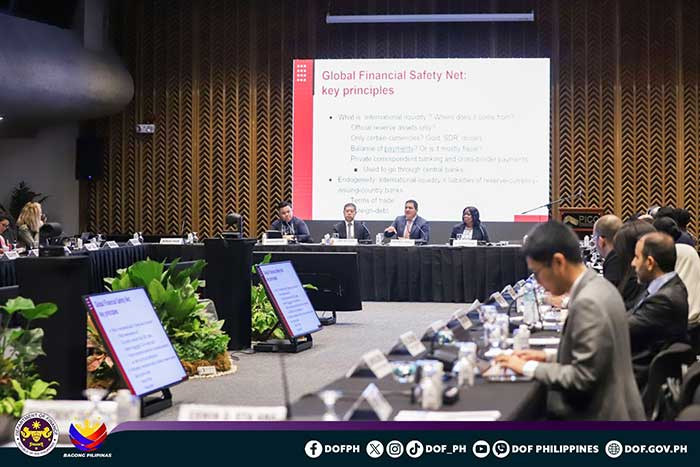
By Francis Allan L. Angelo
The Philippines, currently the chair of the Intergovernmental Group of Twenty-Four (G-24) Board of Governors, took center stage in leading the pivotal G-24 Technical Group Meetings (TGMs) held from February 21-22, 2024.
The Department of Finance (DOF) orchestrated these crucial discussions, addressing the most pressing global challenges of our time.
The G-24, established in 1971, serves as the unified voice of developing countries on international monetary and development finance issues.
Its mission is critical: to ensure that the interests of developing nations are adequately represented in negotiations across international development forums.
This year’s G-24 TGMs, hosted by the Philippines with the theme “Building Resilience to Meet Global Challenges,” delved into contemporary economic issues such as climate financing, alterations in the global trade regime, domestic resource mobilization, and sovereign debt resolution.
These discussions were not mere talks but strategic dialogues aimed at formulating actionable solutions to the hurdles hindering global economic stability and development.
The first panel discussion, “Reforms of the Global Financial Safety Net for the 21st Century Challenges,” addressed the necessity for a financial safety net that is adapted to current global conditions.
“The global financial safety net is unsuitable for the current environment,” the Group declared, emphasizing the critical need for reform to make it more responsive to the needs of developing countries and establishing sound macroeconomic fundamentals to shield the global economy from shocks.
In the face of rising trade protectionism and the ramifications of the pandemic, the second panel titled “Changes in the Global Trade Regime and Impacts on the Global South” highlighted the need for international cooperation that encourages rather than restricts trade, with a focus on mitigating poverty and inequality and progressing towards sustainable development goals (SDGs).
The “Domestic Resource Mobilization for the 21st Century” panel concentrated on the architecture of the current international tax system, seeking ways to shape it more inclusively for developing nations.
The G-24 called for democratic global tax governance that respects the rights and interests of the Global South.
Climate change, a pressing global issue, was addressed in the “Climate Action and Financing” panel.
The Group urged international financial institutions to leverage capital more effectively and enhance the access and concessionality of financing to bridge financing gaps in developing countries for climate adaptation and mitigation efforts.
The final panel discussion on “Sovereign Debt Resolution” acknowledged the progress made under the G-20 Common Framework initiative but recognized the necessity for mechanisms that also assist middle-income countries not covered by the initiative.
The panel stressed the importance of advancing fiscal frameworks that support solid fiscal positions and prudent debt management.
G-24 Director Iyabo Masha, reflecting on the discussions, expressed optimism about the group’s future endeavors.
“Together, we can rise above the challenges, build resilience, and chart our course for a brighter future for our nations and our climate. I thank you all for participation,” Director Masha remarked, emphasizing the collective effort required for meaningful progress.
Sharon P. Almanza, acting as Chair of the TGM Sessions on behalf of the Finance Secretary, underscored the significance of international cooperation.
“While we recognize that there is not a one-size-fits-all solution to our development woes considering our countries’ unique contexts and situations, we acknowledge the importance of international cooperation in this interconnected world,” she stated, highlighting the critical nature of a united approach in these challenging times.
Finance Secretary and G-24 Board of Governors Chair Ralph G. Recto set the tone for the meetings with a call to action.
“We must keep in mind that 2030 marks a universal deadline for all nations to make substantial progress in eradicating poverty, ending hunger, and protecting the environment,” he declared, adding, “With over half a decade remaining until 2030, there is enough opportunity for developing economies to reclaim lost momentum and make a powerful comeback if we unite in concerted action and adhere to fiscal discipline.”
In the wake of these comprehensive discussions, the G-24 will consolidate the shared insights and outline action plans for the country’s governors to consider.
These plans are not just blueprints but are the keystones for building resilient economies that can withstand the ebb and flow of global challenges.
The G-24 now comprises 29 member countries, although it was originally named after its founding member-states. This group stands as a testament to the solidarity among developing nations, striving to ensure that their voices are heard and their interests protected on the world stage.
With the Philippines at the helm, the G-24 is poised to navigate through the turbulent waters of global economic challenges, aiming for a future where no nation is left behind.




















